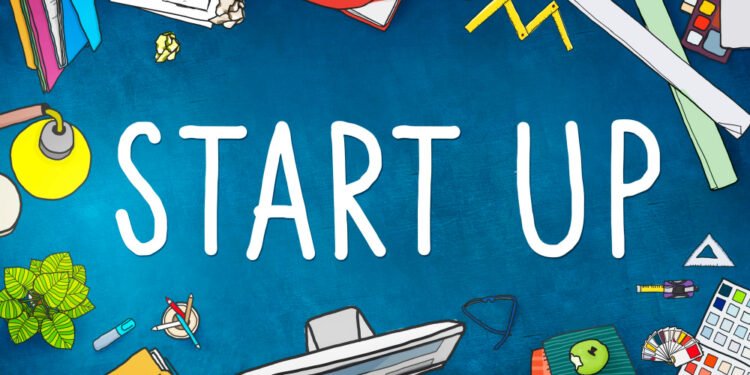What if your business could change the world while turning a profit? More entrepreneurs are proving it’s possible. Companies like SoLo Funds, a Black-owned certified B Corp, and Beetroot, a Ukrainian tech ecosystem, blend financial success with social missions.

The journey begins with three steps: defining real problems, dreaming big, and preparing for scrutiny. Over half of U.S. consumers now boycott unethical brands, showing a clear demand for purpose-driven ventures.
Balancing profit and impact isn’t easy—scaling often tests mission alignment. Yet founders who document their “why” and innovate relentlessly, like those behind Living Goods, thrive. Ready to turn your vision into action?
Key Takeaways
- Consumers increasingly support ethical businesses, with 56% boycotting unethical brands.
- Successful ventures like SoLo Funds prove profitability and social impact coexist.
- Start by identifying urgent problems and validating them through research.
- Mission alignment requires constant innovation as you scale.
- Community-building tools like crowdfunding amplify early-stage impact.
What Does It Mean to Be an Impact-Driven Startup?
Traditional businesses focus on profits, but impact-driven ventures rewrite the rules. They measure success by their positive footprint—solving societal challenges while remaining financially viable. The United Nations Sustainable Development Goals (SDGs) provide a framework for aligning operations with global needs.
Beyond Profit: The Core of Impact Entrepreneurship
A Theory of Change guides these companies. It links actions to measurable social or environmental outcomes. For example, a fintech startup might aim to reduce wealth gaps through community lending.
Impact-driven businesses thrive on transparency. They document progress toward their mission, attracting consumers who value ethics. Over 56% of Americans now boycott brands that fail ethical standards.
Examples of Impact-Driven Success
SoLo Funds, the only Black-owned certified B Corp fintech in North America, democratizes financial access. Its peer-to-peer lending model tackles systemic wealth disparities.
Ukraine’s Beetroot Academy trained 15,000+ people in tech skills since 2014. When war struck, they relocated 500 employees safely while maintaining 80% operations—proving resilience aligns with impact.
These stories show how mission-driven companies outlast crises. UK tech-for-good startups raised £2 billion in 2021, reflecting investor confidence in sustainable models.
How to Build an Impact-Driven Startup from Scratch
Every great venture begins with a clear mission—one that solves real-world challenges. Turning passion into action requires three pillars: problem definition, market alignment, and resilience against scrutiny.

Define Your Problem: Start with Passion and Purpose
SoLo Funds’ founders transformed personal financial struggles into a peer-to-peer lending platform. Their story proves that authentic pain points spark impactful solutions.
Map your experiences to systemic gaps. Conduct focus groups or local pilots to validate needs before scaling. Real-world proof beats assumptions every time.
Dream Big: Align with Market Opportunities and SDGs
The UN’s Sustainable Development Goals offer 169 targets across 17 objectives—a $12 trillion annual opportunity. Beetroot Academy’s tech education programs, for example, directly support SDG 4 (Education) and SDG 8 (Decent Work).
Size your market using SDG-aligned metrics. Investors prioritize ventures with measurable impact and scalable models.
Brace for Scrutiny: Navigating Challenges and Critics
Prepare impact documentation early. Beetroot’s staged outcome tracker convinced investors during their Series A+ raise.
Build crisis plans proactively. When war struck Ukraine, Beetroot’s decentralized team adapted swiftly, safeguarding 500 employees while maintaining operations.
Impact-driven founders face higher expectations. Transparency and adaptability turn critics into allies.
Define Your Impact Strategy
Crafting a meaningful impact strategy separates visionary ventures from ordinary businesses. It bridges intent and execution, ensuring every decision aligns with your mission. Start by mapping three pillars: objectives, global frameworks, and validation.
Set Clear Impact Objectives
A Theory of Change template links daily activities to long-term outcomes. For example, a clean-energy startup might track reduced carbon emissions per product sold. Define inputs, outputs, and impacts early to attract mission-aligned investors.
Use tools like the Impact Management Project’s framework to document risks. Consequence scanning exercises reveal unintended effects on communities or ecosystems. Transparency builds trust with stakeholders.
Leverage the UN Sustainable Development Goals
Aligning with Sustainable Development Goals (SDGs) unlocks funding and credibility. Over 86% of impact investors prioritize SDG-linked ventures, reports GIIN. Beetroot Academy’s tech education programs, for instance, advance SDG 4 (Education) and SDG 8 (Decent Work).
Adopt SDG Impact Standards to streamline reporting. Bloomberg/Sustainalytics screenings add accountability, appealing to global partners.
Measure and Validate Your Outcomes
Impact Beacon and similar platforms track real-time metrics. Beetroot’s 4-step method—set objectives, gather data, address gaps, adapt—ensures continuous improvement.
Integrate impact KPIs into routine operations. Discuss them in team standups or customer analytics reviews. When impact becomes habitual, scaling won’t dilute your mission.
Build a Team and Culture That Drives Change
Culture fuels impact—your team’s values determine your company’s reach. Purpose-driven organizations retain talent 94% better than peers, reports Deloitte. The difference? Mission becomes daily practice, not just a memo.
Hiring for Mission-Aligned Talent
Values-based interviews reveal true fit. Beetroot screens for “wholeness” and anti-corruption mindsets before skills. Their employees launched a war Aid Fund within 48 hours of invasion—proof that people drive impact.
LinkedIn data shows impact-driven roles need 30% less financial motivation. Align incentives with purpose through equity shares or outcome bonuses. Glassdoor ratings and internal NPS surveys track cultural health.
Fostering Decentralized Leadership
Beetroot’s self-managed teams relocated 500 colleagues safely during war. Their crisis playbook—pre-drafted evacuation routes and client comms—turned values into action. Decentralized leadership empowers quick adaptation.
Seventy percent of employee experience hinges on managers. Train leaders to model transparency through weekly “ask-anything” forums. Co-create culture charters to embed values in daily decisions.
Impact scales when every hire owns the mission. Measure what matters: retention rates, crisis response times, and SDG-aligned KPIs. Culture isn’t perks—it’s the engine of change.
Secure Funding and Resources for Long-Term Impact
Funding fuels transformation—your venture’s ability to create lasting change hinges on strategic resource allocation. Impact investors scrutinize mission alignment three times more rigorously than traditional financiers, per Wharton Social Impact Initiative. Prepare to showcase measurable outcomes alongside financial projections.
Pitching to Impact Investors: Proof Over Promises
Seventy-two percent of impact funds use IRIS+ metrics to evaluate startups. Structure pitches around standardized impact reporting, like Beetroot’s $10M humanitarian aid footprint during crises. Highlight your LTV:CAC ratio (3:1 or higher) to demonstrate scalability.
Investors prioritize ventures with pre-validated community need. Share pilot results or SDG-aligned KPIs upfront. SoLo Funds’ B Corp certification, maintained while scaling to 1M+ users, became a trust signal for stakeholders.
Balancing Financial Sustainability with Social Good
Blended finance models merge grants with revenue-sharing to ensure stability. Negotiate impact-linked loan terms—reduced interest rates for hitting SDG targets, for example. Annual benefit reports, like SoLo Funds’, transparently track governance and environmental scores.
Over 3,200 venture-backed startups closed in 2023. Avoid this fate by aligning advisors with deep industry connections. Their networks unlock doors to accelerators and non-dilutive funding, safeguarding your mission during growth phases.
Scale Your Impact Without Losing Your Mission
Maintaining impact during expansion separates visionary companies from short-lived ventures. Nearly 70% of social enterprises lose mission alignment by Series B funding, per Stanford research. Yet Beetroot grew 22% after relocating teams across seven countries during war—proving resilience and purpose can coexist.

Embedding Impact into Business-as-Usual Activities
Institutionalize your mission through governance. Board-level ESG committees at companies like Sanergy ensure every product decision aligns with community hiring goals. Quarterly impact reports build stakeholder trust through transparency.
Automate tracking with tools like Salesforce Impact Cloud. Real-time dashboards monitor SDG progress alongside financial metrics. This dual focus helped Zolar’s solar platform scale while keeping energy accessibility central.
Train teams using Andreas Flodström’s decentralized resilience model. Beetroot’s crisis-ready culture enabled rapid R&D pivots to drone tech for civilian aid. Daily standups should review both operational and impact KPIs.
Adapting to Crises (War, Economic Shifts, etc.)
Pre-draft crisis playbooks. When Ukraine’s conflict erupted, Beetroot activated evacuation routes and client comms within hours. Their supply chain audits using UN Global Compact standards prevented service disruptions.
Pavegen’s partnership strategy offers another blueprint. They prioritized high-visibility projects during economic downturns, maintaining brand purpose through strategic collaborations. Local market immersion builds similar adaptability.
Aquabyte’s AI-driven aquaculture solutions show how tech sustains mission alignment. Their systems optimized fish feeding during supply chain crises, proving innovation protects both impact and profitability.
Conclusion: Your Journey Starts Now
Impact begins with action. From defining urgent problems to scaling with purpose, your business can reshape communities. SoLo Funds achieved B Corp status in three years—proof that milestones matter.
Join entrepreneurs driving change. Download Beetroot’s impact stages template or connect with 18,000+ UN Global Compact members. These tools accelerate success.
Measure progress today. Impact Beacon’s trial platform simplifies SDG tracking. The world needs solutions—your time is now.
FAQ
What defines an impact-driven startup?
Impact-driven startups prioritize measurable social or environmental change alongside financial sustainability. Companies like SoLo Funds and Beetroot demonstrate how profit and purpose coexist.
How do I align my business with the UN Sustainable Development Goals?
Identify which SDGs resonate with your mission. For example, a clean energy startup might focus on SDG 7 (Affordable and Clean Energy) while tracking progress through key metrics.
What funding options exist for impact-focused ventures?
Impact investors like Acumen or TPG’s Rise Fund seek ventures with proven social returns. Grants from organizations such as the Skoll Foundation also support early-stage initiatives.
Can traditional startups transition to impact-driven models?
Absolutely. Companies like Patagonia evolved by embedding impact into core operations—from supply chains to profit reinvestment strategies.
How do I measure my startup’s social impact effectively?
Implement frameworks like Theory of Change or B Corp certification. Tools like ImpactMapper help quantify outcomes beyond revenue metrics.
What prevents impact startups from scaling successfully?
Common barriers include mission drift under investor pressure and insufficient systems for impact measurement. Beetroot’s decentralized model shows how culture sustains growth.
Do impact-driven businesses attract top talent differently?
Yes. 64% of millennials prioritize purpose over salary. Highlight your mission in hiring—show how roles directly contribute to change.
How can startups maintain impact during crises like economic downturns?
Build adaptable impact models. Ukraine’s Promin Aerospace continued lunar missions during war by pivoting to dual-use space tech.





